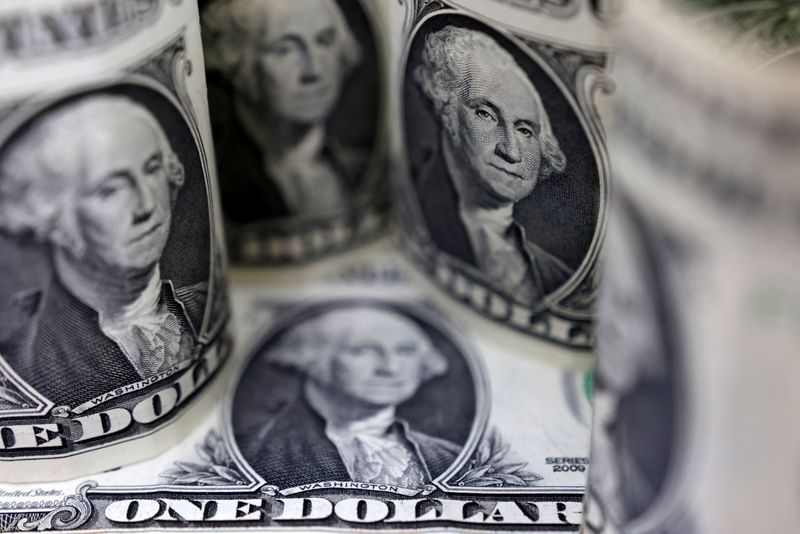TSX runs higher on rate cut expectations
Investing.com - The euro weakened against the dollar on Monday, while the greenback firmed after the U.S. attacked three key nuclear facilities in Iran over the weekend, putting markets on edge over Tehran’s response.
By 06:09 ET (10:09 GMT), the euro had dipped by 0.4% to $1.1473. The dollar index and dollar index futures both rose 0.6%, extending mild gains from the prior week.
The greenback was boosted by increased safe-haven demand, with other havens such as gold and the Japanese yen losing ground.
Asian currencies were also nursing some losses from last week, following hawkish signals from the Federal Reserve. A slew of Fed officials are set to speak in the coming days, potentially offering up more cues on the path of interest rates.
Fed Chair Jerome Powell will testify before Congress on Tuesday and Wednesday.
Investors eye Iran’s response to U.S. attacks
Tehran has yet to give any clear indication of how it plans to respond to the U.S. attacks, saying that it reserved all options to defend itself.
The Islamic republic has also warned of "everlasting consequences" and stepped up its aerial bombardments of Israel, which kicked off the violence 11 days ago with its own surprise strikes on Iranian nuclear infrastructure.
Iran has called Trump a "gambler" and seemed to hint that the weekend strikes expanding the range of legitimate targets for its military. Trump, meanwhile, has raised the question of regime change in Iran in a social media post on Sunday.
Media reports in Iran have suggested that the country is mulling blocking the Strait of Hormuz, a key artery for global oil and gas supplies being sent around the world from the Middle East. Other reports have said that Iran may target one of several U.S. military bases located throughout the region.
Some analysts have argued that although tensions in the Middle East have now intensified, the strikes have removed at least one shroud of uncertainty around whether Trump would move to strike Iran.
Markets are now keen to see how the sudden decision, which came after Trump previously suggested that he would take as long as two weeks to deliberate on a possible strike on Iran, could impact sentiment, inflation and interest rates.
Much of the worry over price growth stems from oil, with traders warning in recent days that an escalation in the Israel-Iran fighting could lead to a disruption of key crude supplies, particularly along the Strait of Hormuz along Iran’s southern coast.
A subsequent spike in oil prices could refuel inflationary pressures, potentially persuading the Federal Reserve to further delay potential interest rate cuts. Crude prices were higher on Monday, paring back earlier gains.
"Oil remains the key driver for foreign exchange," analysts at ING said in a note to clients.
